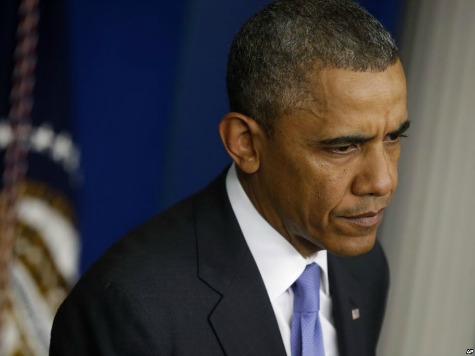Late on Thanksgiving eve, with no one paying attention, the Obama administration released its regulatory road map of thousands of regulations for 2015.
Within the bundle of more than 3,000 regulations lies a rule on ozone that President Obama himself in 2011 “put on ice” in effort to reduce “regulatory burdens and regulatory uncertainty, particularly as our economy continues to recover.” Regarding the 2011 decision that shocked environmental groups, the New York Times recently stated: “At the time, Mr. Obama said the regulation would impose too severe a burden on industry and local governments at a time of economic distress.”
So why is the rule back?
First, Obama isn’t facing an election. More importantly, following the 2011 decision that struck down the proposed ozone rule, environmental groups sued the Obama administration. The resulting court order required the Environmental Protection Agency (EPA) to release the proposed rule by December 1, with finalization by October 2015.
Once again, environmental groups– which, on September 21, revealed that their true intention of changing the system (“capitalism is the disease, socialism is the cure”)– have taken charge of America’s energy policy, and, therefore, economic policy. They have systematically chipped away America’s sources of economic strength: cost-effective energy.
First they came after coal at a time when natural gas ran cheap and proponents touted it as the “bridge fuel” to the future. No one much spoke out. Some in the natural gas business even encouraged the war on coal, as it benefitted them. When I first heard that then-Chesapeake Energy CEO Aubrey McLendon gave the Sierra Club $25 million to fight coal (it is reported that the Sierra Club turned down an additional $30 million), I remember yelling at the TV: “You fool! You will be next!”
Within months, the Sierra Club launched its “Beyond Natural Gas” campaign that claims: “Increasing reliance on natural gas displaces the market for clean energy and harms human health and the environment in places where production occurs.” A headline on the Beyond Natural Gas webpage describes that natural gas as: “Dirty, dangerous, and run amok.” Shortly thereafter, McLendon “agreed to retire.”
The oil industry didn’t make much noise about the Sierra Club campaign. After all, natural gas prices were low and oil, high. While environmental groups generally oppose all fossil fuels, the oil industry has been hurt the least. Jobs in the oil sector of the energy industry have been the lone bright spot in the economy and increased U.S. production has cut our reliance on Middle Eastern crude to the lowest levels in three decades. Even as recently as November 5, President Obama bragged about decreased dependence on imported oil.
Now the administration targets oil-and-gas development and manufacturing through the just-announced 626-page ozone regulation that require states to dramatically reduce ozone emissions from the current 75 parts-per=-billion (ppb) to a range of 65 to 70ppb. Environmental groups want a 60ppb standard, which may be the final rule. While a 5-15ppb reduction doesn’t sound like much, many areas of the U.S. already do not comply, including most of California, with the 75ppb level. The new regulations will mean that, depending on the final rule, 76 to 96 percent of the country–including some national parks where the natural background levels reach 65 to 67ppb–will be out of compliance.
Despite the negative economic impact of the expensive rule–with figures ranging from $19 billion to $270 billion–environmental groups believe Obama will follow through this time.
“The president said his policies were on the ballot, and the American people spoke up against them,” said incoming Senate Majority Leader Mitch McConnell (R-KY). “It’s time for more listening, and less job-destroying red tape. Easing the burden already created by EPA regulations will continue to be a priority for me in the new Congress.”
The author of Energy Freedom, Marita Noon serves as the executive director for Energy Makes America Great Inc. and the companion educational organization, the Citizens’ Alliance for Responsible Energy (CARE). She hosts a weekly radio program: America’s Voice for Energy–which expands on the content of her weekly column.

COMMENTS
Please let us know if you're having issues with commenting.